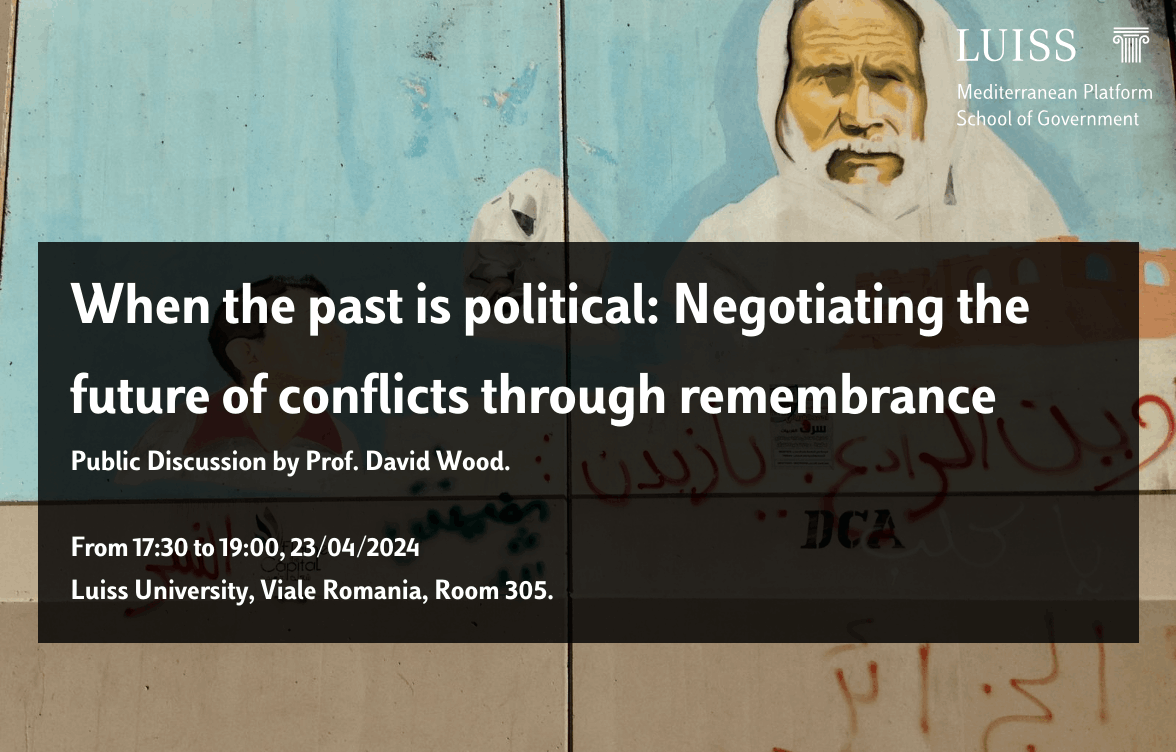When the past is political: Negotiating the future of conflicts through remembrance
Luiss University, 23/04/2024
Introduction by Prof. Virginie Collombier
The “uses and abuses of history” (Margaret MacMillan) in politics is not new. Yet contentious histories seem to play an increasing role in political discourse, whether domestically, as western countries struggle with colonial legacies, or internationally, as countries at war use history and trauma to justify their use of violence and to mobilize global backing. Through history, memory has been widely used as a tool to incite war and to mobilise social divisions through hatred and revenge.
The increased presence of visual testimonies and their dissemination through social media increase the emotional impact of history and exposes collective memory to deception and misrepresentation. The global reach of “memory wars” is amplified and transformed, with the capacity to inflame social and political tensions in real time around the world.
Memory can also become an essential tool for healing communities wounded and torn apart by national and transnational conflicts. Remembrance, through public and private moments of commemoration, can be a vehicle for transforming conflicts and building unity and cohesion in divided communities.
The event aims to focus on the ethical duty that social and political leaders have in addressing the ambivalent issue of remembrance and commemoration: as an amplifier of violence and as a tool for social and human reconciliation.
The discussion aims to provide the opportunity to test a new framework for Ethical Political Commemoration, drawing on academic research and learning from international conflict resolution case studies.
This event is based on the recently published book “Ethics of Political Commemoration” by David Wood and Hans Gutbrod. It also builds on the work of the Luiss Mediterranean Platform in Libya.
